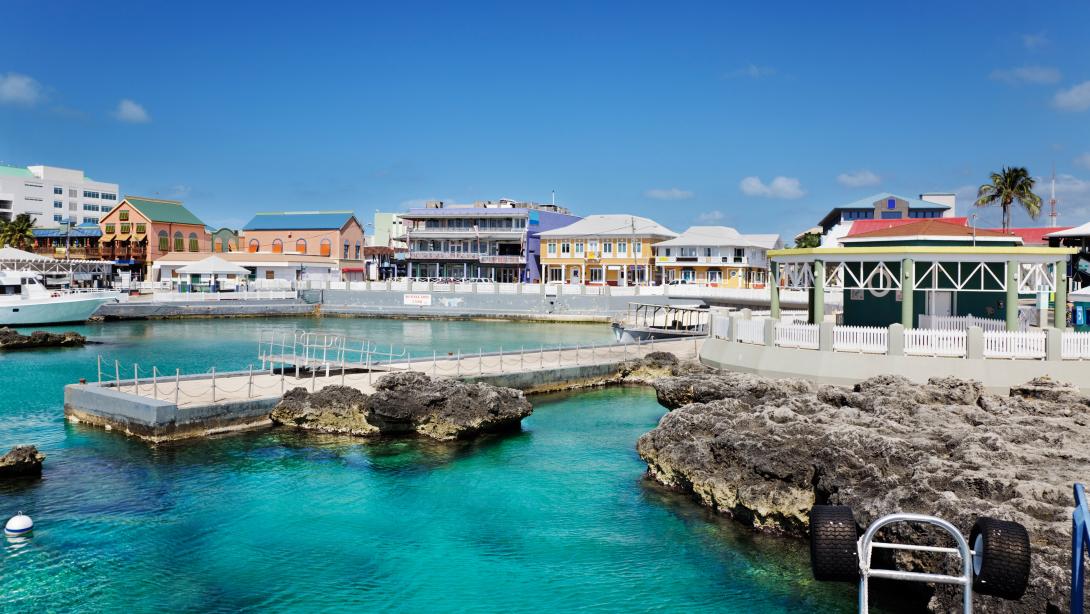
Delaware vs Cayman for fund domiciliation?
Following Trump's H.R.1. legislation, which is considered to be the most significant overhaul of the US tax system in the past 30 years, Delaware faces stiff competition from the Cayman Islands as the primary domicile of choice for closed-ended investment funds.
Why has Delaware been a popular domicile for funds?
Delaware has long been a popular domicile of choice for funds structured as limited partnerships. Fund promoters with a US asset focus or investor base have been avid proponents, with 'The First State' considered to offer a well-established and sophisticated limited partnership legal framework, strong limited partner liability protection and flexibility over partnership key terms. However, recent US tax legislation may see fund promoters with a previous preference for structuring using Delaware, looking elsewhere.
What has Trump's impact been on Delware as a domicile for funds?
The US President signed into law H.R.1 (formerly known as the Tax Cuts and Jobs Act) on 22nd December 2017, with certain elements effective from the start of 2018. The new legislation is comprehensive, affecting individuals, institutions and organisations across all industries.
One of the most profound rulings of the legislation is the lowering of tax rates for corporations (reduced from 35% to 21%) and individuals. However, given the significance of the overhaul, the impact is far more wide-reaching.
The legislation is considered to have increased the tax risk for controlled foreign corporations (CFCs). In certain circumstances, the broad changes may also result in additional reporting requirements for Delaware limited partnerships and US taxable investors, resulting in further financial and resourcing implications for fund promoters.
Tax risk, in terms of the minimisation of tax leakage, is clearly an important area of consideration when choosing where to domicile a fund. As a result, the ability of fund promoters to adapt to investor needs and provide them with the best domicile option is of upmost importance. For this very reason, fund promoters may well be looking towards the Cayman Islands as an increasingly attractive and alternative base for fund domiciling.
Why is Cayman increasingly attractive for fund promoters?
The Cayman Islands are of course, considered to be one of the key international finance centres for global banking and investment funds. For many years, the Cayman-exempted limited partnership has been a common choice for fund sponsors, offering the required flexibility, including many of the key benefits of the Delaware legislation.
Yet as Delaware comes to terms with its heightened tax risk, the recent updates to the Cayman Islands' anti-money laundering legislation brought it into line with international standards - an attractive feature for fund promoters and their underlying investors. Couple this with its well-regulated and sophisticated financial environment, and Cayman's appeal as a domicile of choice for closed-ended investment funds rises further.
Moreover, Cayman does not carry the potentially adverse tax implications for US taxable investors in instances where the asset base of the fund is non-US (unless a significant indirect interest is held). This is a further pull factor for Cayman and through discussions with their tax advisors, many fund promoters may indeed see these factors as contributing to the migration of their operations to a non-US limited partnership structure.
Trump's H.R.1 legislation therefore provides an interesting opportunity for the Cayman Islands. If they promote and broaden their offering as an attractive fund domicile alternative, they harbour the potential to pilfer Delaware's limited partnership trade.
What are the benefits of a Jersey Limited Liability Company (LLC) for fund promoters?
Alternatively, and following the success of the LLC in the US and the introduction of the LLC by the Cayman Islands in 2016, the Jersey LLC is currently being developed. Jersey in the Channel Islands is a popular destination for North American asset and fund administration, with around £169bn administered in 2016. The planned introduction of LLCs highlights Jersey's desire to enhance this international relationship and bring further investment to the Island.
Along with the benefit of the limited liability protection of a company, it is expected that the Jersey LLC will offer:
- Familiarity for many US investors
- Potential for tax transparency
- The same flexibility and privacy of a partnership
Ocorian Fund Services
With teams in the Americas, Europe, Middle East and Asia, Ocorian's international funds expertise encompasses the full range of investment structures (both private, open-ended, closed and listed) specialising in alternative asset classes across real estate, private equity, venture capital, infrastructure, debt and depositary services.
Our jurisdictional coverage includes that of the Cayman Islands, where we provide bespoke administration, fiduciary, trustee and special purpose vehicle services and are able to service Cayman limited partnerships, companies and trusts. Our New York office also provides US private equity and real estate fund managers with access to a full range of specialist European and African fund structures and SPC investment vehicles.
In terms of any funds wishing to migrate, Ocorian can assist with the migration process to ensure this is as seamless and cost effective as possible. We also have significant expertise and extensive knowledge in administering multi-jurisdictional investment funds domiciled in a number of locations.
Our excellent contacts with top tier legal counsel in these jurisdictions can offer bespoke advice on all relevant legal matters.
Contact us for more information about our US and Cayman Island fund services.
Related Items
View all
